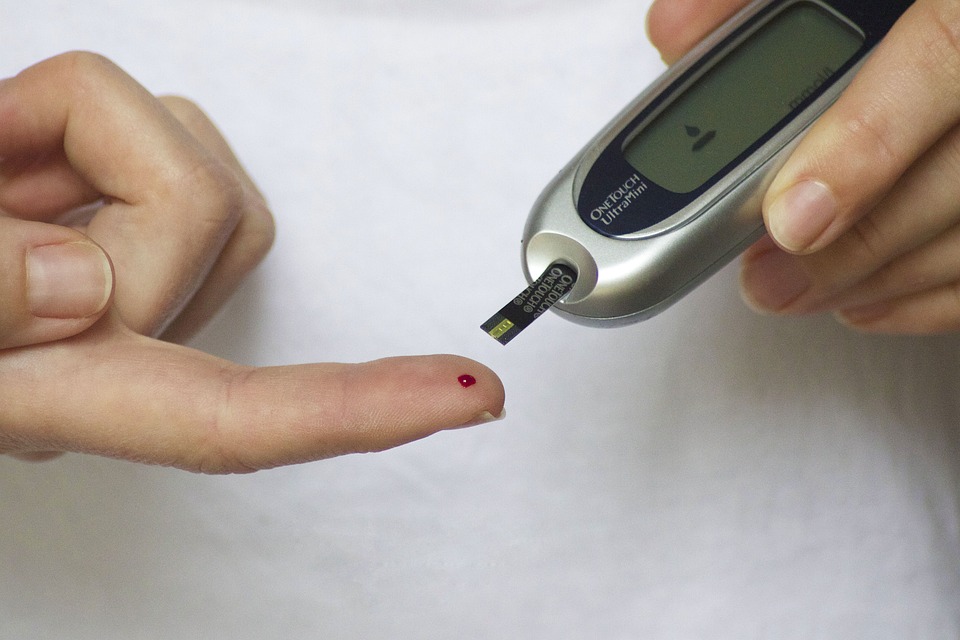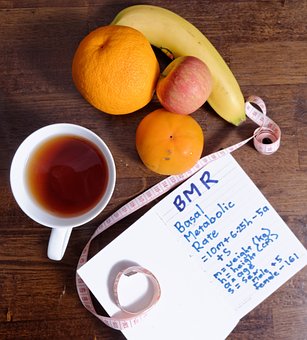
When you lose weight, your body fights back.
If you lose weight quickly at first, it may be difficult to keep the weight off.
Too much exercise could be working against weight loss
Overexercising might prevent you from losing weight, but it can also cause harm.
Listen, nobody is more pro-workout than I am.
There are many benefits to exercising, such as stronger bones, improved insulin sensitivity, and increased longevity.
When you improve your diet and exercise habits, you will become better at burning fat.
Muscles require more energy to stay in your body, making your metabolism healthier.
However, exercise does not help you lose weight as much as previously thought.
You will likely lose a small amount of weight if you start exercising.
Newer research suggests that you won’t lose as much weight by exercising as you might think.
A few years ago, it was shown by researchers that the amount of calories we burn gradually level off at a certain point. The reason for this is because our bodies adapt to the increased physical activity.
To put it simply, the more active you are, the more energy you expend- but only up to a certain point. After that, your body gets used to the activity and doesn’t need to expend as much energy to do it.
In other words, exercise has diminishing returns.
How much weight you lose from exercise is impacted by your age, gender, and health.
Exercising too much can have a negative effect on your weight, heart, immune system, and more.
The Million Women Study is a study that looked at over one million women between the ages of 50 and 64. researchers asked these women how often they did strenuous exercise at the beginning of the study.
About three years later, these women were asked to complete a questionnaire about how many hours each week they spent on specific exercises.
Moderate physical activity is associated with a lower risk.
However, women who did strenuous activity daily were at a higher risk for heart disease, stroke, or a blood clot breaking free.
In other words, if you can’t stick to a workout routine or you’re working out to an excessive degree, it’s not good for your physical health or your body shape.
This article provides a list of 17 possible explanations for why an individual may not be losing weight, despite making changes to their diet or lifestyle.
This text contains tips on how to overcome a plateau and continue making progress.
- Maybe you are losing without realizing it
Don’t worry if you think you’re experiencing a weight loss plateau.
Body weight can fluctuate by up to 5lbs in a single day Although it’s common for the scale not to move for a few days or weeks at a time, this doesn’t mean that you’re not losing fat. Body weight can fluctuate by up to 5 pounds in a single day.
Your body weight can go up or down by a few pounds depending on what you eat and how much water your body is retaining. Hormones can have a big effect on water retention, especially for women.
You can also gain muscle while you’re losing fat. This is especially common if you just started working out.
It is beneficial to lose body fat rather than just weight.
You should not rely solely on the scale to track your progress. Additionally, you could measure your waist circumference and body fat percentage once a month.
Your clothes and how they fit as well as how you look in the mirror can give you a lot of information.
If your weight has not been moving or has only been moving very slowly for more than 1-2 weeks, you may want to consider taking some action.
- You’re often stressed, moody, and hungry
If you find yourself struggling after working out, it may be because you’re doing too much.
When you exercise, your body produces more of the stress hormone cortisol. This is because your body can’t tell the difference between exercise stress and normal stress.
A small amount of intense exercise can make your body more flexible.
Eating too much and exercising too much can have opposite effects on the body intended. Exercising too much can actually lead to muscle breakdown rather than muscle growth.
Cortisol levels that are too high can cause an increase in belly fat, as well as reduce the effectiveness of weight loss. This is due to the hormones impacting thyroid function.
The text is saying that having too much cortisol also makes you moody, irritable, and unable to concentrate or sleep.
This can result in feeling bad and hungry all the time, which could cause weight gain from overeating.
- You’re not keeping track of what you’re eating
Being aware of how much you’re eating is very important if you want to lose weight. A lot of people don’t realize how much they’re actually consuming.
released findings suggesting that people who kept food journals lost twice as much weight as those who didn’t. Keeping track of the food you eat is linked with weight loss, according to studies. People who use food diaries or take pictures of their meals are more likely to lose weight than those who don’t. A study released in 2007 found that people who kept food journals lost twice as much weight as those who didn’t.
While food tracking can have some potential downsides, it can also be helpful for people who are trying to lose weight. For people with eating disorders, calorie counting and food tracking can help to identify problem areas and work on solutions.
- You’re not eating enough protein
Protein is an important nutrient for losing weight.
If you want to metabolism to work more efficiently, try consuming 25-30% of your calories in the form of protein. This change could lead to eating several hundred fewer calories per day and could also help to control snacking habits.
The way protein affects appetite is partially due to its impact on hormones that manage hunger, like ghrelin.
If you want to eat breakfast, make sure you include a lot of protein. Studies have shown that people who eat a breakfast with a lot of protein are less likely to be hungry and have fewer cravings during the day.
A high protein intake prevents metabolic slowdown and weight regain.
- You’re often tired
If you are feeling fatigued or worn out, this may be a sign of overtraining.
I feel like I’m struggling through every workout, and I’m either not improving or getting worse.
You may not be able to go as long, work as hard, or lift as much as you once could.
If you’re always exhausted, you’re more likely to get injured because you’re not mentally or physically alert.
If you notice that your heart rate is higher than normal when you’re resting or if you feel exhausted after working out instead of energized, you could be doing too much.
Some clients feel determined to continue their routine even when they are feeling pain.
Yet almost every time, that approach backfires.
- You’re eating too many calories
If you are having trouble losing weight, you are probably eating too many calories.
Don’t be so sure that you don’t need to worry about this. Studies show over and over that people tend to eat more calories than they think they do.
If you are not losing weight, you should try weighing your foods and tracking your calories to see where you might be going wrong.
Here are some helpful resources:
- Calorie calculator.
- Calorie counters.
If you want to make sure you’re getting enough of a certain nutrient, like protein, tracking is important. Without tracking, it might be impossible to get the amount you need.
This is not something you need to do all the time. Every few months, try these techniques for a few days to get an idea of how much you’re eating.
- You’re not eating whole foods
Food quality is just as important as quantity.
Eating unprocessed, whole foods can help improve your well-being and control your appetite. These foods tend to be more satisfying than their processed counterparts.
Many “health foods” are actually not very healthy. Make sure to read the ingredients list on the packaging, and be aware of foods that have added carbohydrates.
- You’re not lifting weights
Resistance training, such as lifting weights, is one of the most important things you can do when losing weight.
If you want to maintain your muscle mass, you should exercise regularly. Otherwise, your muscles will be burned along with your body fat.
Weightlifting can help stop your metabolism from slowing down and help keep your body toned and muscular.
- You’re binge eating
Someone who binge eats might consume an entire pint of ice cream, a family-sized bag of chips, or an entire pizza in one sitting. Binge eating often involves eating even when you’re not hungry and continues until you feel uncomfortably full. Binge eating is defined as consuming large amounts of food in a short period of time. This often means eating more than you body needs, to the point of feeling uncomfortably full. For someone who binge eats, this might mean eating an entire pint of ice cream, a family-size bag of chips, or an entire pizza in one sitting. Often, binge eating occurs even when the person isn’t hungry.
When people try to lose weight, they may sometimes eat a lot of food at once. This is called binge eating. Some people binge on unhealthy processed foods, while others binge on healthier foods like nuts, nut butter, dark chocolate, and cheese. Even if a food is healthy, it still has calories that can impact weight.
- You’re not doing cardio
Cardiovascular exercise is any type of exercise that increases your heart rate by making your heart and lungs work harder. This type of exercise includes activities such as jogging, cycling, and swimming.
Interval training, which alternates periods of intense activity with periods of active rest, is one of the most effective ways to improve your health. It is also very effective at burning belly fat, the harmful visceral fat that builds up around your organs and causes disease.
- You’re still drinking sugar
Sugary drinks are a major contributor to obesity as they are full of calories but don’t make you feel full.
Although “healthier” beverages like Vitaminwater may not contain as much sugar as sugary drinks like Coke and Pepsi, they still contain enough sugar to be unhealthy.
Fruit juices are not as healthy as people may think and should not be consumed in large amounts. A single glass of fruit juice can contain as much sugar as several pieces of whole fruit.
- You’re not sleeping well
Having a good sleep is important for your physical and mental health, and can also help you maintain a healthy weight.
Research indicates that inadequate sleep is a significant contributing factor to obesity in adults and children. Poor sleep habits increase the risk of obesity by 55% in adults and 89% in children.
- You’re not cutting back on carbohydrates
If you are significantly overweight and/or have a metabolic condition such as type 2 diabetes or prediabetes, you may want to consider a low-carbohydrate diet.
The keto diet has been shown to cause more weight loss in the short term than the standard low-fat diet.
A more recent trial in 2018 found little difference in the results of a nutrient-dense, low-fat diet versus a nutrient-dense, low-carb diet. Finding a sustainable meal plan that you can enjoy long-term is key.
Low-carb diets can help with more than just weight loss. They can also lead to better triglycerides, HDL (good) cholesterol, and blood sugar levels.
- You’re eating too often
It is a myth that you have to eat many small meals throughout the day to lose weight.
The studies are wrong- meal frequency is the key to weight loss and fat burning.
Being able to prepare and eat food all day makes it much more difficult to maintain healthy nutrition.
Intermittent fasting is an effective weight loss method that involves deliberately going without food for extended periods of time.
- You’re not drinking water
Drinking water can benefit weight loss.
One study found that people who drank half a liter of water 30 minutes before meals lost 44% more weight than those who did not.
Drinking water has also been shown to help you burn more calories. In one study, people who drank water before a meal burned 24-30% more calories over a 1.5-hour period than those who didn’t drink water.
- Your immune system is taking a beating
Moderate exercise is beneficial for your immune system, but too much exercise can have negative effects.
If you believe you are becoming healthier, you are mistaken and are actually setting yourself up to become ill.
If you notice that you’re falling ill more often after working out frequently, you should take a close look at your routine and how often you’re doing it.
This, in turn, can lead to cell damage and inflammation, which, over time, can cause serious health problems. Excessive exercise can cause your body’s antioxidant defense system to become overloaded, leading to cell damage and inflammation. This can cause serious health problems over time.
If your immune system is weak, you age faster and are more likely to get age-related diseases such as heart disease.
- You’re drinking too much alcohol
If you want to lose weight but still like to drink alcohol, it is better to stick to mixed drinks with vodka or other spirits. Beer, wine, and other alcoholic drinks with added sugars are high in calories.
It is important to remember that alcohol contains a lot of calories, with 7 calories per gram.
Even though moderate drinking is linked with weight gain, studies show that moderate drinking is still fine.
What’s the Solution?
If you think that you are exercising too much and that is why you can’t lose weight, you don’t need to stop exercising altogether.
The key to achieving your fitness goals is to find a balance between exercising and allowing your body to rest. Too much of either can lead to injury or setbacks.
First, take the right approach to exercise.
Even light activity like walking is enough. You don’t need to go to the gym or do tedious at-home workouts to strengthen your immune system. Even light activity like walking is enough.
Instead, take this four-step approach to exercise.
- Move more, period. Everything counts here! Park further from the grocery store door, take a park walk with your bestie… anything to fit in those steps.
- High-intensity interval training (HIIT). With HIIT or burst training, you want to go hard. The whole thing should take maybe 10 or 15 minutes, tops.
- Resistance training. Lift the heaviest weight you can in good form. Again, this shouldn’t take long.
- Mindful movement. I’m talking about restorative and balancing exercises here like yoga.














